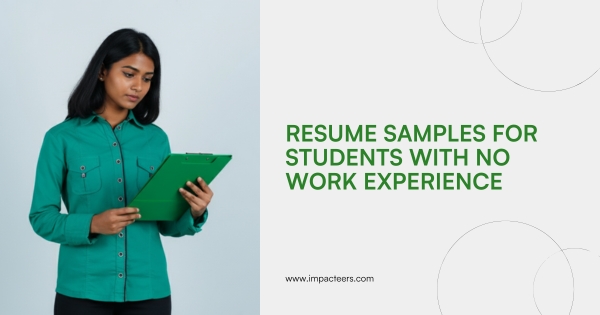The debate of Government vs Private jobs isn’t new. It’s an age-old conversation that has divided generations. For some, government jobs equal security and pride. For others, private jobs mean speed, innovation, and bigger paychecks.

But which is better for you? Let’s break it down—benefits, drawbacks, and career paths—so you can decide where your future lies.
Visit Us >>>> https://www.impacteers.com/home
A quick story to set the scene
When I was 21, I had two offers on the table.
One was a government position in a local department. Predictable pay. Good benefits. A steady rhythm.
The other was at a small IT firm. Higher starting salary. Fast pace. Long hours.
I took the IT job.
Why? I wanted to learn fast. I liked the chaos.
Three years later, my college roommate cleared an exam and joined the Railways. He got housing, travel perks, and a calm routine. He loved his weekends.
Both choices made sense. Both made them happy. They just wanted different things.
That’s the whole point. There’s no single winner in the Government vs Private jobs debate. There’s only what fits you.
What government jobs give you
Think safety and structure.
- Job security. Layoffs are rare. You have stability.
- Perks. Pension, medical cover, travel perks, and sometimes house allotment.
- Fixed hours. Most jobs follow set office timings.
- Social respect. In many towns, a government post carries weight.
- Predictable promotions. Upgrades come on schedules and rules.
Who they fit: people who value steadiness. Those who plan for family life. People who like routine.
But it’s not all roses.
The drawbacks of government work
- Competition. Huge numbers sit for the same posts. Exams are tough.
- Slow growth. Promotions can take years. You rise in steps.
- Bureaucracy. Rules can slow things down. Creativity may be stifled.
- Initial pay. Entry pay can lag behind private offers in some sectors.
If you don’t enjoy waiting or want instant rewards, these points matter.
What private jobs give you
Think speed and variety.
- Higher starting pay (often). Especially in tech, sales, finance.
- Fast promotions. Perform well and you move up quickly.
- Learning curve. You pick new skills fast.
- Flexibility. Remote work, flexible hours in many firms.
- Exposure. Work with global teams. Handle varied projects.
Who they fit: people aiming for rapid growth. Those who like new challenges. Folks who don’t mind risk.
But private life has its own costs.
The drawbacks of private work
- Job insecurity. Layoffs happen. Companies change fast.
- Work pressure. Targets, deadlines, reviews. Stress is real.
- Work-life blur. Long hours and weekend calls are common.
- Benefits vary. No guaranteed pension. Perks depend on company policy.
If you prefer a calm routine, these can weigh you down.
A side-by-side snapshot
| Factor | Government Jobs | Private Jobs |
| Job security | High | Variable |
| Initial pay | Moderate | Often higher |
| Growth speed | Slow | Fast |
| Work hours | Fixed | Flexible / Long |
| Perks | Pension, medical, travel | Bonuses, stock options |
| Culture | Formal, rule-based | Dynamic, performance-based |
| Need to clear exams | Yes (often) | No (interviews/skill tests) |
What people often ask
“Which pays more?”
Short answer: it depends. In the long run, top private roles can out-earn many government posts. But senior government officers can have excellent pay and pensions.
“Which is safer?”
Government jobs are safer. Fewer shocks. Fewer surprises.
“Which is better for family life?”
Government jobs often fit family life better. Fixed hours and long leaves help.
“Is a private job a dead end?”
No. Many make great careers and move into entrepreneurship or leadership. Skills matter.

How to decide: three quick tests
- Risk test: Do you sleep fine if the company fires people next month? If no → government leans safer.
- Growth test: Do you want to double your skills and salary in 3 years? If yes → private likely.
- Value test: Which matters more—security or speed? Pick based on that.
These are simple. Yet they cut through the noise.
The exam factor: government exam vs hiring tests
Most government roles need a government exam. Think SSC, UPSC, RRB, banking tests. You must study. You must be consistent.
Private jobs ask for skills and interviews. Sometimes a coding test or an assignment. Sometimes campus placements.
Both paths require work. One asks for exam practice. The other asks for demonstrable skills.
Real talk on money and perks
In private jobs, your income can jump fast. Bonuses and stock options can change your life. But that depends on company health and your role.
In government jobs, income grows slowly but steadily. The big win is post-retirement security. A pension is a long-term safety net most private workers don’t get.
Also, consider non-money perks. Travel concessions, health care for family, housing. These reduce everyday costs.
Can you switch later?
Yes. Many people start in private firms to build skills. They then clear a government exam later. Others leave government posts to try private roles, though that’s less common.
Switching takes planning. You’ll need to upskill for the private side or prepare for exams for the government side. Mentorship helps here.
The role of mentorship (a quiet nudge)
When the choice feels overwhelming, having a mentor helps. I’ve seen students waste years guessing. Then a mentor gave a nudge. The path became clear.
Small note: some mentorship programs, like Impacteers mentorship, focus on both exam strategy and career roadmaps. They guide with practical plans, mock tests, and honest feedback. If you want structure, a mentor can speed things up.
Mentioning them here because real guidance matters. Not to sell. To help.
A simple plan if you’re undecided
- Try both. Work a private job for 1–2 years. Study part-time for a government exam.
- Or, prepare full-time for the exam. If you clear it, great. If not, use the skills to join private firms.
- Keep learning. Skills travel across both worlds.
Many people follow path #1. It gives both income and a safety net.
What employers look for today
Private firms want skills. Communication. Problem solving. Evidence that you can deliver.
Government roles need reliability. Rules-following. Clear knowledge of the syllabus. Consistent practice.
In both cases, soft skills help. Teamwork. Initiative. A habit of learning.
Short checklist before you apply
- Know the pay, leave, and transfer rules.
- Check job location. Will you move towns?
- Ask about growth timelines.
- Read employee reviews for private firms.
- Talk to current employees in government departments.
A little homework saves a lot of regret.
Government vs Private jobs each come with unique benefits and drawbacks, and understanding these differences can help you choose the right career path.
Final thoughts: a short note to you
There is no single “better” choice in Government vs Private jobs. Only the better choice for you.
Listen to your own priorities. Think about family, money, speed, and what makes you wake up happy.
If you want structure, get a mentor. If you want to learn fast, chase private roles. If you want calm and stability, aim for government posts.
Either path can lead to a good life. Choose with courage. Then go do the work.
If you want, I can help you plan the next steps. Study plan for a government exam, or a CV plan for private jobs. Which one shall we draft first?
About Us >>> https://blog.impacteers.com/
Five FAQs
Q1: Which is better for long-term stability—government or private?
Government jobs generally offer more long-term stability because of fixed rules, pensions, and fewer layoffs.
Q2: Can private jobs beat government jobs in benefits?
Some private firms offer excellent benefits—insurance, bonuses, stock. But government jobs offer pensions and certain lifelong perks that private firms rarely match.
Q3: Is it risky to prepare for a government exam full-time?
There’s risk. You delay income while you prepare. Many balance a job and study to reduce risk.
Q4: Can mentorship really help in choosing between the two?
Yes. A mentor gives clarity, study plans, and actionable feedback. It reduces guesswork and speeds progress.Q5: How do I decide if I should try both routes?
Assess your risk tolerance, family needs, and career goals. If possible, start with a private job and prepare for exams part-time. That gives you income and keeps options open.



Post Comment